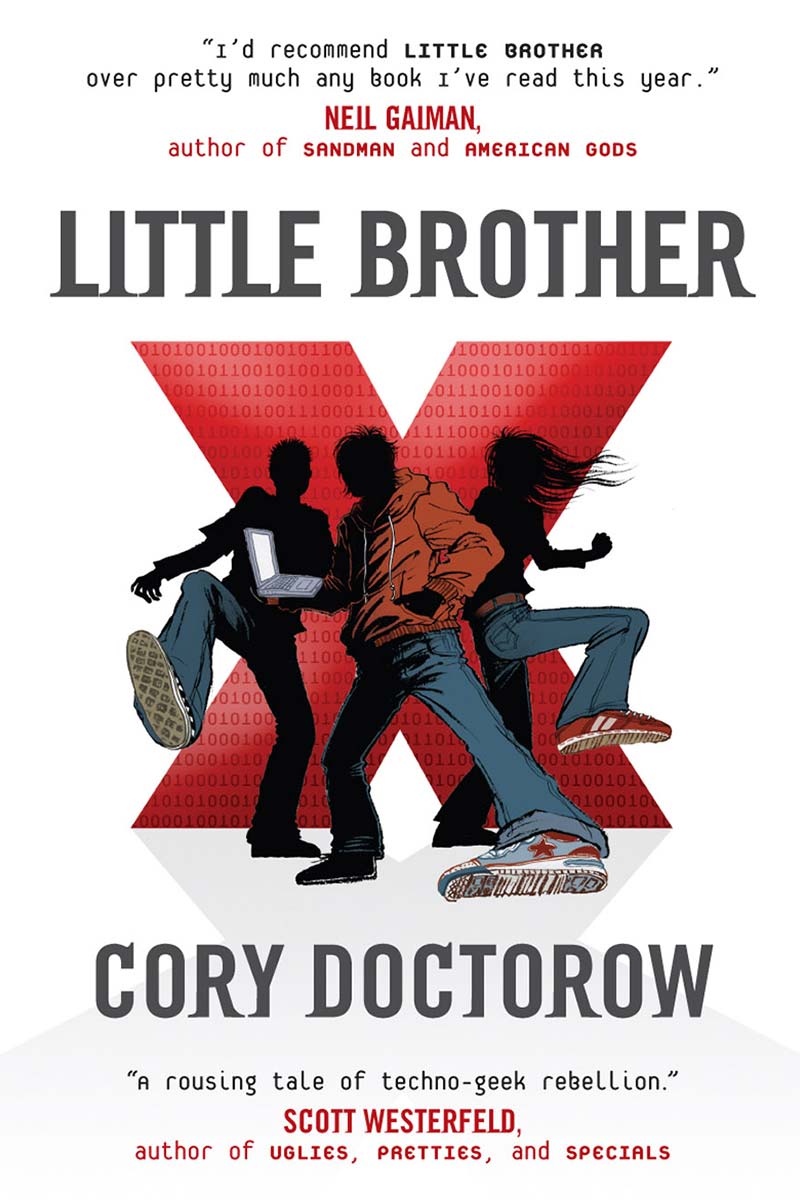“I can talk about Little Brother in terms of its bravura political speculation or its brilliant uses of technology — each of which make this book a must-read — but, at the end of it all, I’m haunted by the universality of Marcus’s rite-of-passage and struggle, an experience any teen today is going to grasp: the moment when you choose what your life will mean and how to achieve it.
All About:
Reviews
About Reviews Buy a copy Download e-book Audiobook Donate a copy Remixes
Neil Gaiman
I’d recommend Little Brother over pretty much any book I’ve read this year, and I’d want to get it into the hands of as many smart 13 year olds, male and female, as I can.
Because I think it’ll change lives. Because some kids, maybe just a few, won’t be the same after they’ve read it. Maybe they’ll change politically, maybe technologically. Maybe it’ll just be the first book they loved or that spoke to their inner geek. Maybe they’ll want to argue about it and disagree with it. Maybe they’ll want to open their computer and see what’s in there. I don’t know. It made me want to be 13 again right now and reading it for the first time, and then go out and make the world better or stranger or odder. It’s a wonderful, important book, in a way that renders its flaws pretty much meaningless.
Publishers Weekly
Filled with sharp dialogue and
detailed descriptions of how to counteract gait-recognition cameras,
arphids (radio frequency ID tags), wireless Internet tracers and other
surveillance devices, this work makes its admittedly didactic point within
a tautly crafted fictional framework
Booklist
Readers will delight in the details of how Marcus attempts to stage a techno-revolution … Buy multiple copies; this book will be h4wt (that’s ‘hot,’ for the nonhackers).
Elizabeth Bear
This book has a whole bunch to recommend it: It’s fast-paced, well-written, and the protagonist is engaging in a geeky way, if just a tiny little bit generic. The book is a bit didactic in places. However, since in some ways it’s a fictionalized manual for how to build an underground resistance to an evil government, that’s only to be expected. Really very good, and based on what I remember about my own teenage years,
Strange Horizons
Little Brother is not a light-hearted book. Many of the “pro-revolution” YA books I’ve read in the past few years go from resistance to victory without really passing through pain and sacrifice. In the course of this book Marcus and his friends, and others they don’t know of, are tortured, and each time Marcus comes up against the mentality that official suspicion must rest on something, that people must have done something or they wouldn’t be in trouble. Marcus has to deal with betrayal from some of the adults in his life, and the discovery that not all his friends can or will follow him. He learns some hard truths about his own privileged position as he realises that this war against youth is also a war against non-whites. He discovers that the America he understood as historical is not a consensus, that there is no consensus America, only one that has been bitterly contested time after time and is safe only if people fight for it to be safe. Even his victory will be partial, as he discovers that there is no way he is going to be allowed to think of himself as wholly innocent.



























